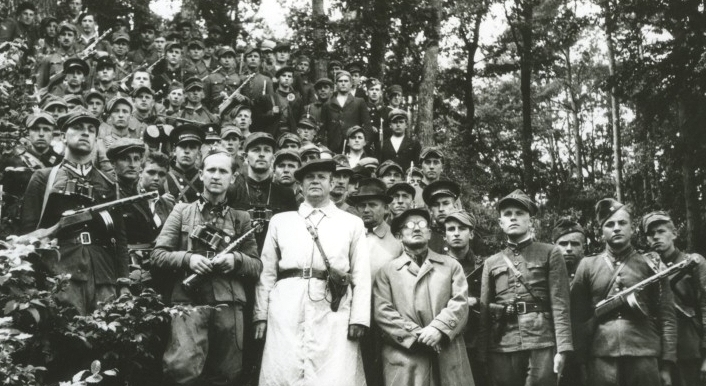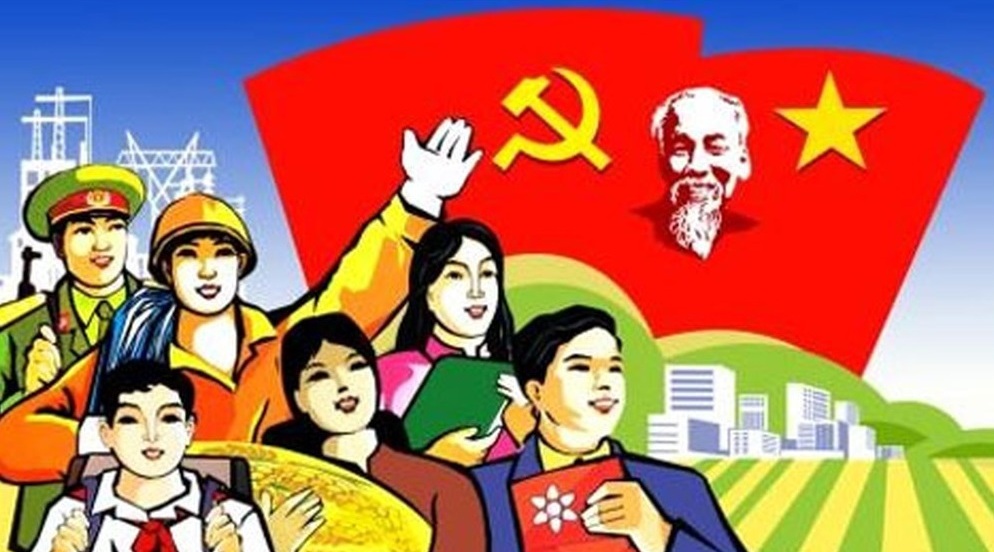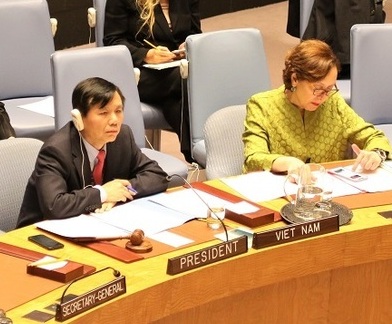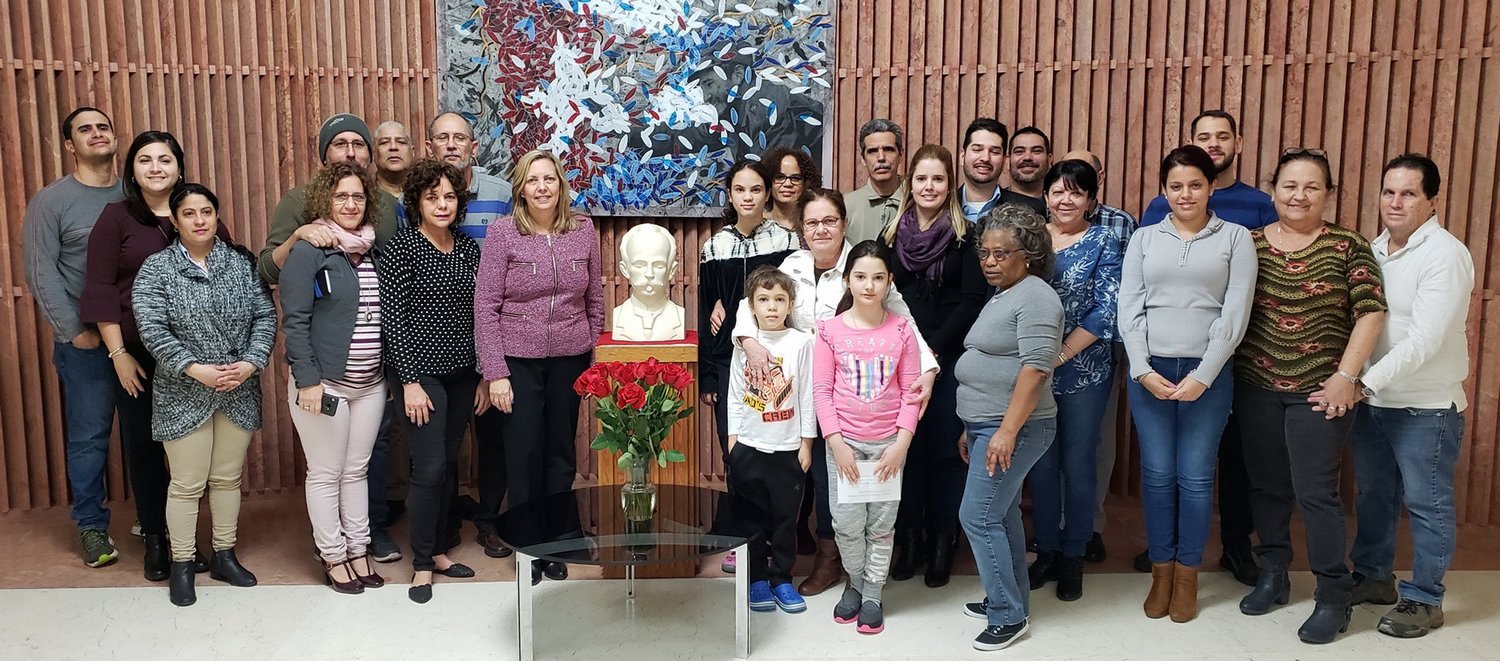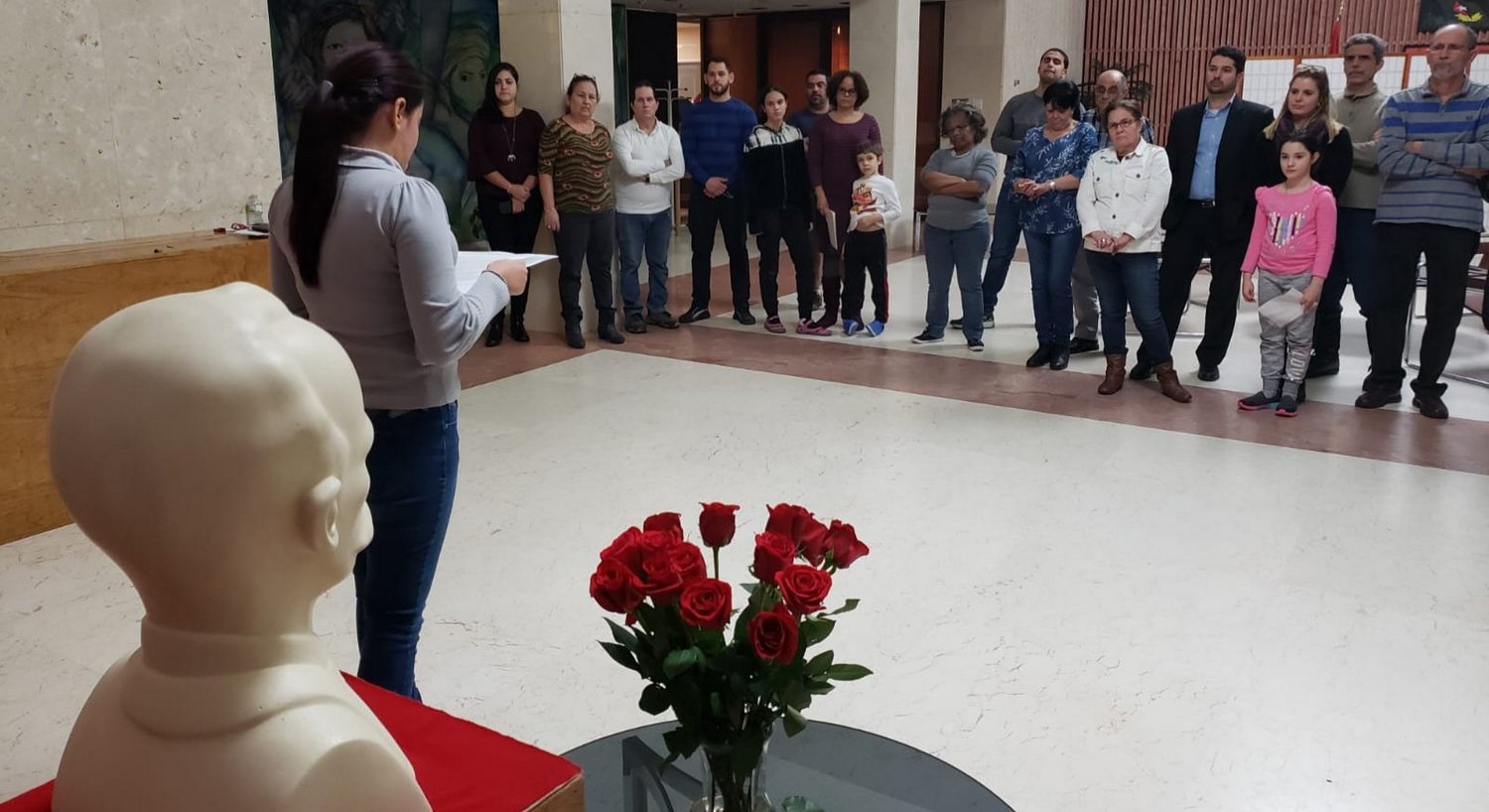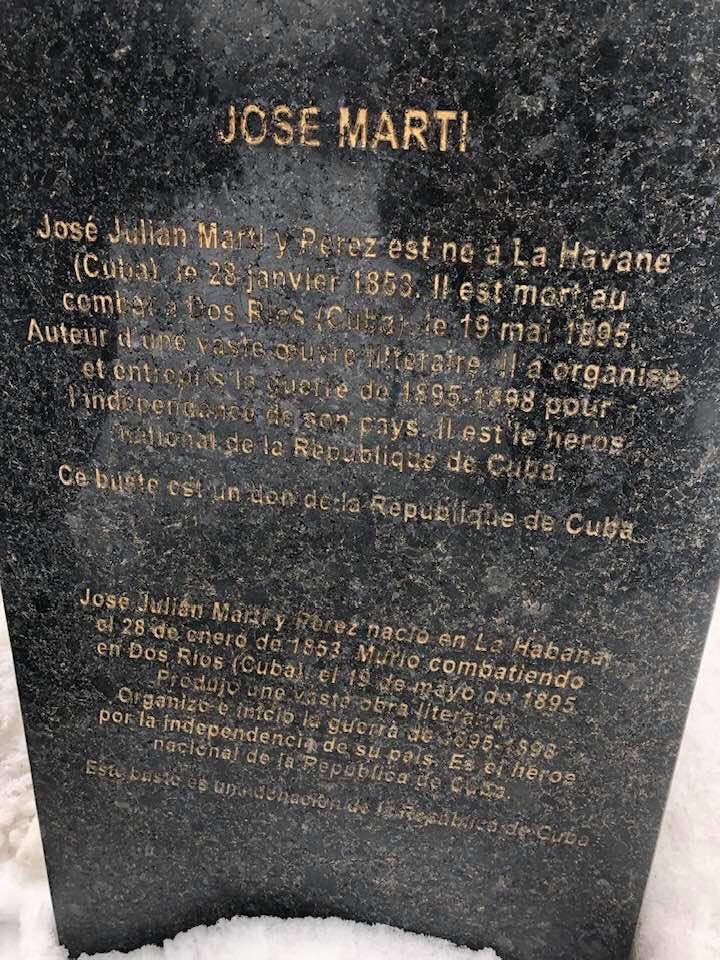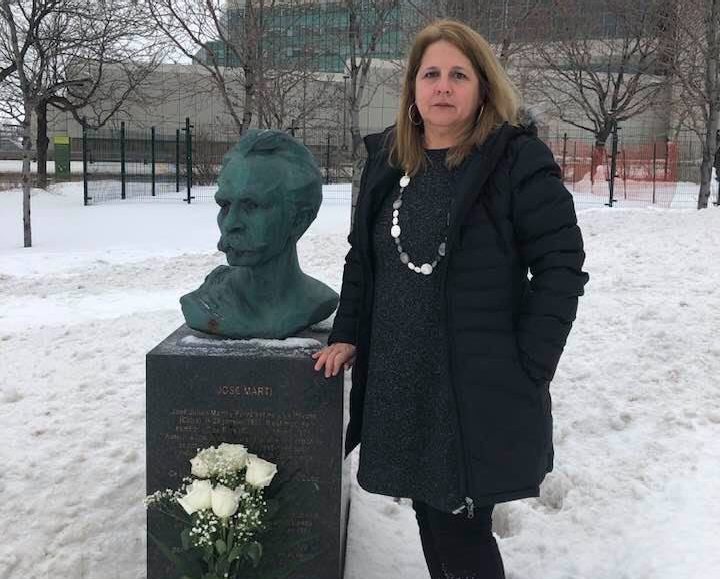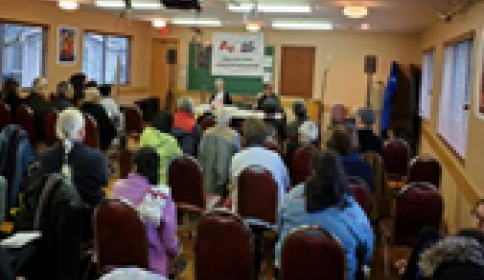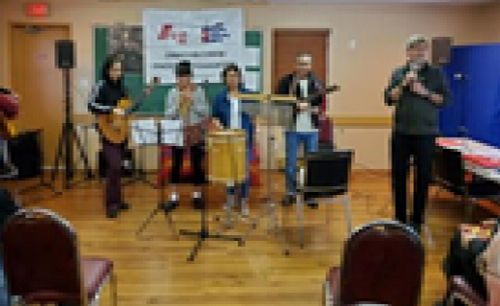
|
Supplement No. 2February 1, 2020 Important Anniversaries • 61st
Anniversary of the Triumph of the Cuban
Revolution and 75th Anniversary of Diplomatic
Relations between Cuba and Canada • 90th
Anniversary of the Founding of the • 167th Anniversary of the Birth of José Martí Reception at Cuban Embassy in Ottawa |
|
|
He went on to add that in 2019, health care,
education, environmental protection and climate
change adaptation had all been given due attention
and improved. President Nguyen noted as well that
the political and social situation has remained
stable and national security and defence have been
strengthened which contributed to a peaceful
environment in the country. He noted as well that
Vietnam's participation in international affairs
was strengthened and expanded which contributed to
raising the position, role and prestige of the
nation. He gave the example of Vietnam being
elected by the UN General Assembly as a
non-permanent member of the UN Security Council
for the 2020-21 term, gaining 192 out of 193
votes, a record high number. President Nguyen at
the time said, "Vietnam will fulfill the mission
successfully, continuing to be a friendly and
reliable partner to contribute to global efforts
for sustaining peace, cooperation and
development."
He also noted that Vietnam is now Chair of the
Association of Southeast Asian Nations (ASEAN) and
well positioned to promote regional cooperation
and peace among the ASEAN countries and peoples.
"These achievements are a vivid manifestation of
the tireless efforts of the entire Party, people
and armed forces, with consensus and
synchronization of all levels, branches and
localities throughout the country as well as the
strong support of the international community,"
the President said.
The work of party-building is key to Vietnam's
success in achieving its goals. This work bears no
resemblance to the stereotype of how a communist
party functions, which is the stock disinformation
promoted in the media in this country. On the
contrary, the work to train and promote new
members to positions of leadership ensures that
their talents can be given full play and the role
of the Party and State are strengthened in service
of the people and the society.
President Nguyen underscored the fight against
corruption in the context of party-building as the
most important highlight of 2019. He emphasized
the impressive results combating corruption,
success in eliminating wastefulness and other
problems. Many corruption cases have gone to trial
and in the handling of the big cases, the Party
gained valuable experience while at the same time
those accused were justly and humanely treated. He
added: "The Party's efforts have been supported
and appreciated by the people. It is the most
impressive highlight, which has helped strengthen
and enhance the people's confidence in the Party
and State as well as promote the socio-economic
development program in a comprehensive and
effective manner."
Next year the Communist Party of Vietnam will be
convening its 13th Congress for which careful and
extensive preparations are being carried out.
Speaking of the upcoming Congress and the local
regional congresses leading up to the National
Congress, President Nguyen said: "The upcoming
National Party Congress has the task of reviewing
10 years of implementing the Party's 2011 Platform
(including supplements and developments made since
then), looking back at 30 years of implementing
the 1991 Platform for National Construction in the
Transition to Socialism and 35 years of the Doi
Moi (Renewal) process; and the task of summarizing
the 10-year implementation of the Socio-economic
Development Strategy 2011-2020, in order to create
the basis for the building of the Socio-Economic
Development Strategy for the next 10 years.
"This congress will not only set out the goals and
tasks for the next five years, from 2021 to 2026,
but it will also define a longer-term strategic
vision, towards the celebrations for the 100th
founding anniversary of the Communist Party of
Vietnam (2030) and the 100th anniversary of the
August Revolution and National Day (2045). These
are large and difficult undertakings that require
thorough, careful, comprehensive and scientific
research on the principle of inheriting and
actively innovating in accordance with domestic
conditions and the trend of globalization and
international integration. For example, it is
important to understand that proper political
reform does not mean changing the political
regime. It means renewing the political system,
organizational structure, working methods, etc.
With regards to economic reform, it is also
necessary to properly evaluate the relationship
between respect for market rules and ensuring
socialist orientation within the State, the market
and society. We must thoroughly grasp the guiding
thought for renewal, without straying from the
ideals and the path that the Party, Uncle Ho and
the people have chosen."
This is the legacy of the Party of Ho Chi Minh,
the legendary leader of the Vietnamese people and
founder of the Communist Party of Vietnam. Ho Chi
Minh founded the Communist Party of Vietnam, then
known as the Communist Party of Indochina, in Hong
Kong on February 3, 1930. At the time the people
of Vietnam were facing the most brutal oppression
and exploitation under French colonialism.
Vietnamese patriots were killed, incarcerated or
exiled when they organized in the anti-colonial
anti-imperialist struggle to overthrow the French.
The resistance was heroic but not successful
because it lacked competent leadership and
revolutionary theory based on the conditions of
Vietnam to guide it. It was Ho Chi Minh who summed
up the striving of the Vietnamese people's
anti-colonial struggle against the French
colonizers and concluded that without a Communist
Party with a Marxist-Leninist theory and outlook
to guide the movement, the Vietnamese people would
continue to face great difficulty in crowning
their anti-colonial struggle with victory.
At the time of the founding of the Party Ho Chi
Minh gave the call:
The Indochinese Communist Party has been founded. It is the Party of the working class. It will help the proletariat lead the revolution waged for the sake of all oppressed and exploited people. From now on we must join the Party, help it and follow it in order to implement the following slogans:
1. To overthrow French imperialism and Vietnamese feudalism and reactionary bourgeoisie;
2. To make Indochina completely independent;
3. To establish a worker-peasant-soldier government;
4. To confiscate the banks and other enterprises belonging to the imperialists and put them under the control of the worker-peasant-soldier government;
5. To confiscate all the plantations and property belonging to the imperialists and the Vietnamese reactionary bourgeoisie and distribute them to the poor peasants;
6. To implement the eight-hour working day;
7. To abolish the forced buying of government bonds, the poll-tax and all unjust taxes hitting the poor;
8. To bring democratic freedoms to the masses;
9. To dispense education to all the people;
10. To realize equality between man and woman.
Under the leadership of Ho Chi Minh and the Communist Party of Vietnam, the people of Vietnam drove out the French and Japanese militarists, proclaimed their republic in September 1945, and then organized the people to defeat the efforts of the French (aided by the U.S., Canada and other Anglo-imperialist states) to recolonize Vietnam, and then those of the U.S. imperialists when they took up where the French had left off. The Communist Party of Vietnam, at monumental cost and sacrifice, made a historic contribution to the anti-colonial anti-imperialist struggles of the world's peoples for peace, and laid the foundation of the new Vietnam. In all of this the Communist Party of Vietnam was steeled and seasoned to be the instrument of the Vietnamese people's striving for independence and self-determination.
In his "Testament" of 1969, the year of his
death, Ho Chi Minh again highlighted the decisive
role of the Communist Party of Vietnam as the
organizer and mobilizer of the people to defend
their interests:
First about the Party -- Thanks to its close unity and total dedication to the working class, the people and the Homeland, our Party has been able, since its founding, to unite, organize and lead our people from success to success in a resolute struggle. Unity is an extremely precious tradition of our Party and people. All comrades, from the Central Committee down to the cells, must preserve the unity and oneness of mind in the Party as the apple of their eye.
Within the Party, to establish broad democracy and to practice self-criticism and criticism regularly and seriously is the best way to consolidate and develop solidarity and unity. Comradely affection should prevail.
Ours is a party in power. Each Party member, each cadre must be deeply imbued with revolutionary morality, and show industry, thrift, integrity, uprightness, total dedication to the public interest and complete selflessness. Our Party should preserve absolute purity and prove worthy of its role as the leader and very loyal servant of the people.
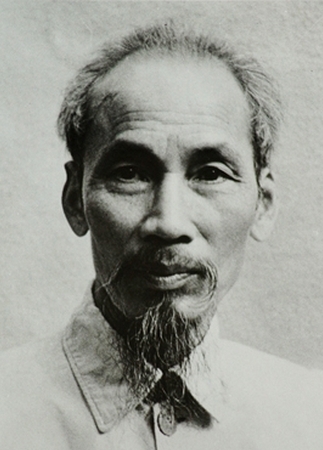 The legacy of the Party that Ho Chi
Minh founded 90 years ago is expressed and
strengthened in the Communist Party of Vietnam
today as it continues to find its bearings under
complex conditions and in all circumstances.
Vietnam has successfully dealt with the external
challenges in the world, the rivalry of big
powers, the crisis in the imperialist system of
states by strengthening and consolidating the
Communist Party of Vietnam. As the Party
approaches its 13th Congress next year, it can be
seen by the optimism and confidence of the
Vietnamese people, that the future of
revolutionary Vietnam shines bright.
The legacy of the Party that Ho Chi
Minh founded 90 years ago is expressed and
strengthened in the Communist Party of Vietnam
today as it continues to find its bearings under
complex conditions and in all circumstances.
Vietnam has successfully dealt with the external
challenges in the world, the rivalry of big
powers, the crisis in the imperialist system of
states by strengthening and consolidating the
Communist Party of Vietnam. As the Party
approaches its 13th Congress next year, it can be
seen by the optimism and confidence of the
Vietnamese people, that the future of
revolutionary Vietnam shines bright.
The glorious history of the Communist Party of
Vietnam in leading the Vietnamese people in
building a prosperous and modern socialist society
is a vivid example of the indispensable role of
the Communist Party in uniting the people to build
a society for the benefit of all. In this way
Vietnam has also succeeded in taking its place in
the world as a highly respected nation which is a
force for peace, freedom and democracy at home and
internationally.
These facts refute the propaganda which we hear
these days against communist parties which comes
from those ruling circles which are trying to
cover up the fact that it is the system of liberal
democracy with its multi-party system which is the
most hegemonic and oppresses the working class and
people and prevents the society from moving
forward.
As we celebrate the 90th anniversary of the
Communist Party of Vietnam it is important to use
this opportunity to study and reflect on the role
of the communist party in modern society to
organize and unite the people to sort out the
problems they and humanity face.
The living links between the Canadian and
Vietnamese people were forged when tens of
thousands of Canadians across Canada, particularly
the youth, stood with the Vietnamese people in
their struggle to defeat U.S. imperialism and
reunify their divided nation. Here we also
vigorously opposed Canada's sale of weapons and
armaments, including warheads, bullets, and
chemicals to make napalm, and other war materials
to the U.S., which were in turn used against the
Vietnamese people. The ties between the Vietnamese
people today are enhanced with visits by Canadians
to Vietnam to get to know and appreciate that
country, and other bilateral ties, and the
contributions made by Vietnamese students studying
in Canada. The Canadian people will always stand
with revolutionary Vietnam.
On this historic occasion of the 90th anniversary
of the founding of the Communist Party of Vietnam,
our Party pledges to pay first-rate attention to
strengthening the fraternal relations between our
two parties and two peoples.
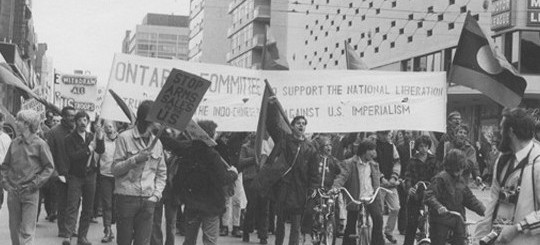
CPC(M-L) contingent in a 1970s demonstration in
support of the struggle of the Vietnamese people
to defeat U.S. imperialism.
167th Anniversary of the Birth of José Martí
José Martí, Essential to Our America
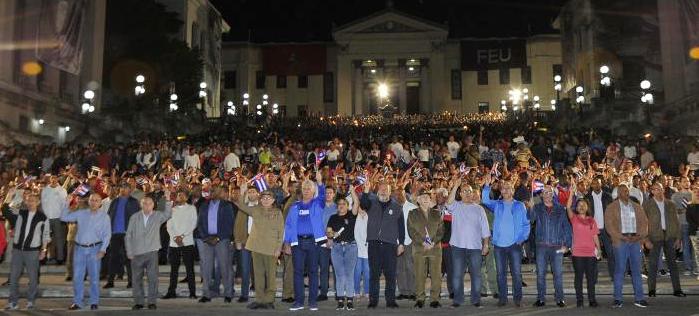
Torch-light march at the University of Havana,
Cuba, honours the 167th anniversary of José
Martí's birth, January 28, 2020.
Whoever speaks
of economic union speaks of political union. The
nation that buys, commands; the nation that
sells, serves. Commerce must be balanced to
assure freedom. A nation that wants to die sells
to one nation only, and a nation that would be
saved sells to more than one. The excessive
influence of one country over another's commerce
becomes political influence.
- José Martí, 1891
 January 28 marks
the 167th anniversary of the birth of José Martí,
Cuba's national hero, architect of the 1895 war
and critical thinker of the "new republic" that
would be established in Cuba after its
independence, a republic "with all and for the
good of all," which would be essential to curb the
expansionism of its northern neighbour.
January 28 marks
the 167th anniversary of the birth of José Martí,
Cuba's national hero, architect of the 1895 war
and critical thinker of the "new republic" that
would be established in Cuba after its
independence, a republic "with all and for the
good of all," which would be essential to curb the
expansionism of its northern neighbour.
It can be said that, more than a century and a half after his birth, it is essential to study José Martí if you want to know about the process and the importance of the unity of Latin America, its origins, its history, its actors, its background and more specific forms and ways in which said union is sought.
José Julián Martí Pérez, was born in Havana on January 28, 1853 and had a childhood marked not only by the needs of his family but by the reality of Cuba as a Spanish colony. Early on he was politically active and engaged with his friends and his teacher Rafael María de Mendive, in plots for liberating Cuba.
At 15 years of age, he was sentenced to prison
in the quarries of San Lazaro in Havana for his
political activism, following which he was
banished and then deported to Spain in 1871. His
first major writing, "Political Imprisonment in
Cuba," emerged from this experience. In subsequent
years he travelled through several countries of
America, including a return to Cuba at the end of
the Ten Years' War, from where he was again
deported. In 1881 he settled more stably in New
York, where he stepped up the intensity of his
work for independence.
José Martí and Latin American Unity
In his book To the Sun I Go, Glimpses of Martí's Politics, Pedro Pablo Rodríguez said that "Latin American unity is therefore a logical consequence of Marti's anti-imperialism, or better, is the other side of that coin, because of the close interdependence of both aspects of his thought."
In 1891, Martí repeated his position in the Monetary Conference of the American Republics and that same year published his transcendental essay on Latin American unity, "Our America," a product of a profound maturity of his thought, which placed not only the Indigenous figure at the centre of the formation of the American republics, but also the need for their own approach and to take part in international trade, "Let the world be grafted onto our republics, but we must be the trunk."
Reissuing the Monroe Doctrine
However, it is a priority for the U.S., which does not look favourably on this approach, as made clear a few days ago by Secretary of State Mike Pompeo on his way through Costa Rica, who criticized China's "flashy promises" highlighting on the other hand U.S. investment in the Central American country, sparking a diplomatic row with the Chinese embassy in San Jose.
All this creates a scenario that places Latin America at the centre of global geopolitical disputes and there exists in the work of Martí relevant elements to illuminate the understanding of the events that are taking place. Some 167 years after his birth, we can say not only that Martí was an outstanding thinker, but also was accurate at the key moment of the emergence of the styles and organizations that would largely shape modern life throughout the 20th century (mass society, parties, mass movements) and are now facing the systemic crises of late capitalism and the scientific-technological revolution challenging humanity in multiple ways.
Martí's legacy may contribute to understanding
the complexity of the history of Latin American
unity, in a situation that has seen in recent
times the collapse of the Union of South American
Nations (UNASUR) and the resurgence of the
Community of Latin American and Caribbean States
(CELAC) and the Caribbean Community (CARICOM) as
key areas of cooperation between the countries in
the south of America, permitting those who study
it to have a better perspective and understanding,
and to size up events more appropriately. José
Martí is in this sense an indispensable voice and,
without doubt, one of the essential voices of our
America.
The diplomatic corps at Cuba's Embassy and their
families pay tribute to José Martí,
Ottawa, January 28, 2020.
Cuban Consul in Montreal, Mara Bilbao Diaz,
delivers flowers to the bust of José Martí at
Latin America Park, Quebec City, January 28, 2020.
The Canadian Cuban Friendship Association-Vancouver commemorates the birth of José Martí, January 26, 2020.
Yolanda Machado is a journalist, communicator and student of Marti's thought. She is the author of several papers on José Martí for international meetings, and teaches courses in Argentina on the political thought of José Martí.
(Rebelión, January 28, 2020. Translated from original Spanish by TML. Photos: Estudios Revolución, TML, Cuban Embassy in Canada.)
(To access articles individually click on the black headline.)
Website: www.cpcml.ca Email: editor@cpcml.ca
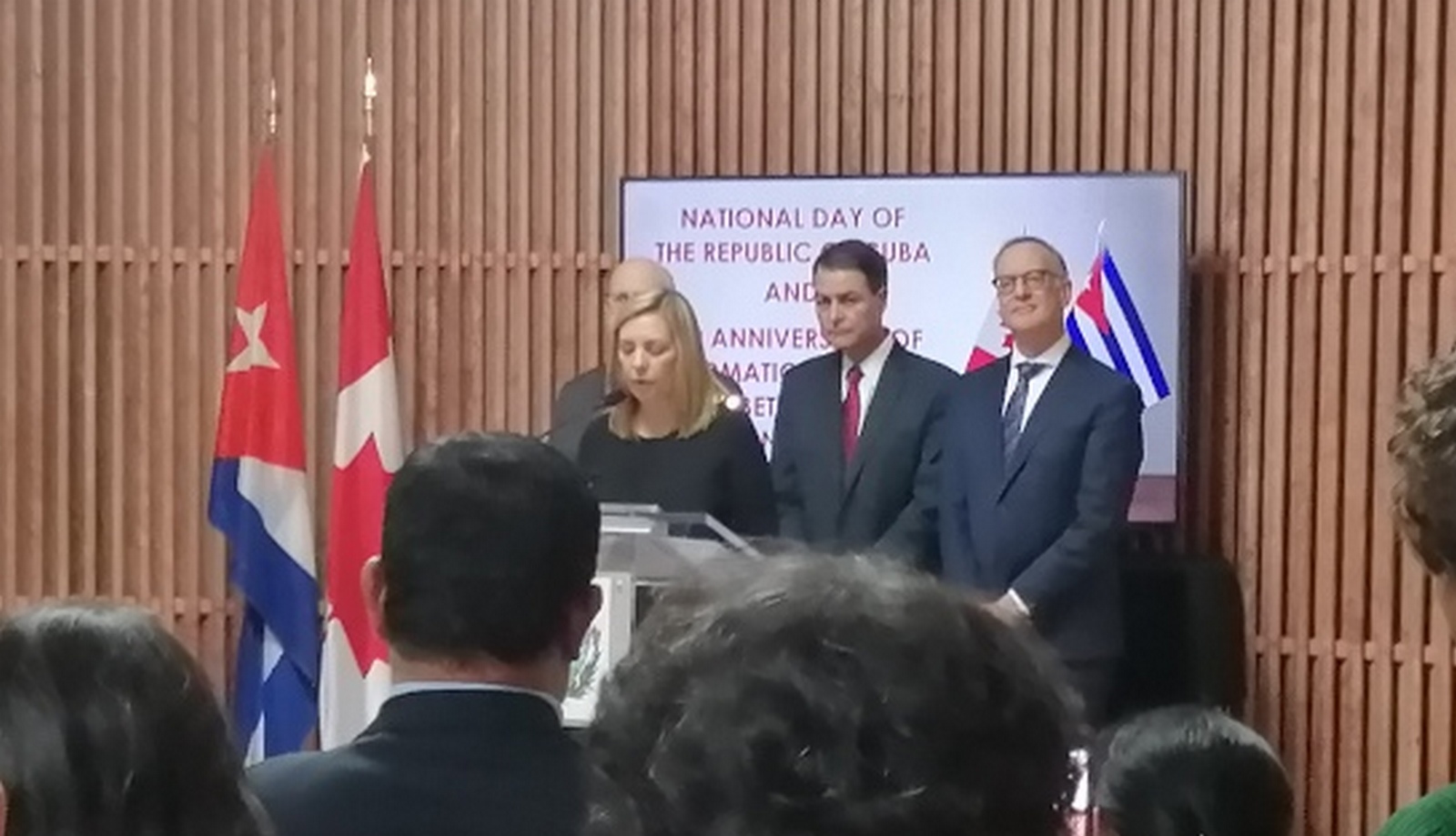
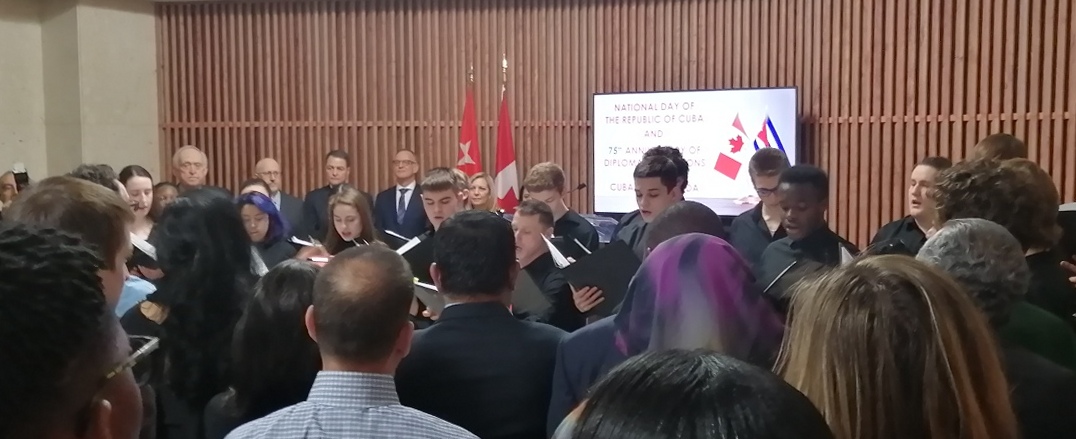
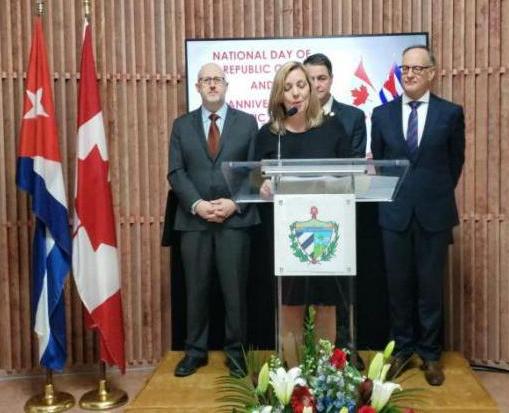 "[She]
recounted the main milestones in bilateral
relations, especially in the last 60 years, which
have witnessed a sustained strengthening of
diplomatic and economic ties, and an increase in
contacts between the two peoples. She recalled, in
particular, the relevant place that Canada
occupies in our foreign relations, as the first
issuer of tourists to Cuba, second foreign
investor, fourth trade partner and one of the main
sources of cooperation projects.
"[She]
recounted the main milestones in bilateral
relations, especially in the last 60 years, which
have witnessed a sustained strengthening of
diplomatic and economic ties, and an increase in
contacts between the two peoples. She recalled, in
particular, the relevant place that Canada
occupies in our foreign relations, as the first
issuer of tourists to Cuba, second foreign
investor, fourth trade partner and one of the main
sources of cooperation projects.
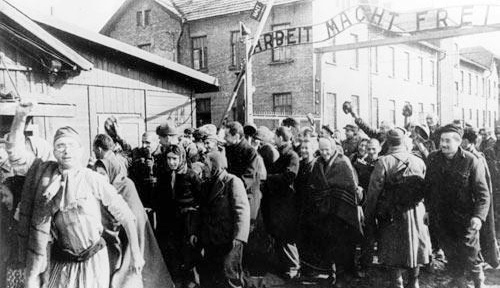

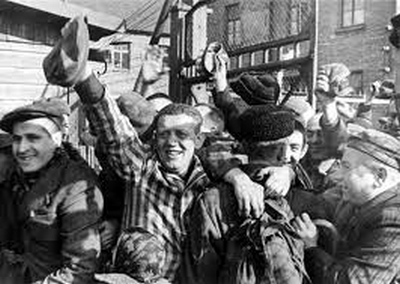 Left: Memorial
plaque to those killed by the Nazis in Auschwitz,
put in place in 1948 and removed in 1989.
Left: Memorial
plaque to those killed by the Nazis in Auschwitz,
put in place in 1948 and removed in 1989. 